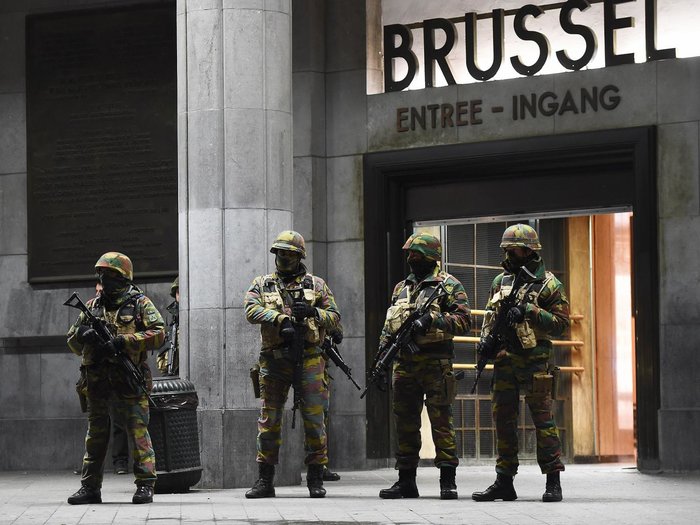Why was Brussels attacked? Has terrorism now become normal in Europe?

Peter Neumann, a researcher who focuses on Islamist terrorism, has been particularly vocal about warning that Europe may have to accept the fact that terror attacks could become increasingly common.
"Whatever arrests will be made in the coming days – we should not assume that the threat will consequentially be over," Neumann told the German TV channel ZDF. "It`s a risk which will accompany us for years if not a generation. To a certain extent we will have to get used to a constant terror threat, just like Israelis have done."
From Paris to Brussels - Terror Timeline
European newspaper front pages on Wednesday reflected such sentiments, implying that Tuesday`s attacks may become part of a long chronology of attacks – with more still to come. "Stay strong," Belgian daily Le Soir`s headline read. French newspaper "Liberation" simply wrote "Brussels. 22 March 2016."
There are several factors which could explain why Europe`s terror threat has kept rising rapidly in recent months. Isis`s sudden rise and a slow response by European security agencies allowed thousands of homegrown radicals to travel to Syria and Iraq. Many of them have since returned – some without ever being registered, questioned, or sentenced to jail.
Europe has been slow to respond, partially because the Schengen treaty which allows freedom of movements within much of the continent. But intelligence sharing between various agencies has also caused headaches. Even today, Europe lacks a joint database for Isis fighters.
Former French intelligence chief Alain Chouet told the New York Times that information was rarely passed on – among other obstacles. "We even didn’t agree on the translations of people’s names that are in Arabic or Cyrillic, so if someone comes into Europe through Estonia or Denmark, maybe that’s not how we register them in France or Spain," said Chouet.
Apart from that, standards for counter-radicalization programs in Europe differ dramatically: Whereas Britain`s Channel program for individuals vulnerable of being radicalized is considered a leader of its kind, some other large European Union member states still lack national equivalents.
Such difficulties have made it easier for terror groups like the Isis to plan attacks with the declared goal of raising the number of Western recruits and creating societal tensions within Europe. That is why an increasing number of experts have urged Europeans to fight radical extremism – but to also acknowledge that not all attacks will be stopped.
"Everyone knew it would happen. And today it happened," a participant in a Brussels memorial on Place de la Bourse was quoted as saying by the TV channel RTL on Tuesday evening.
"The attacks were predictable," he said, waving a Belgian flag to commemorate the victims.















































